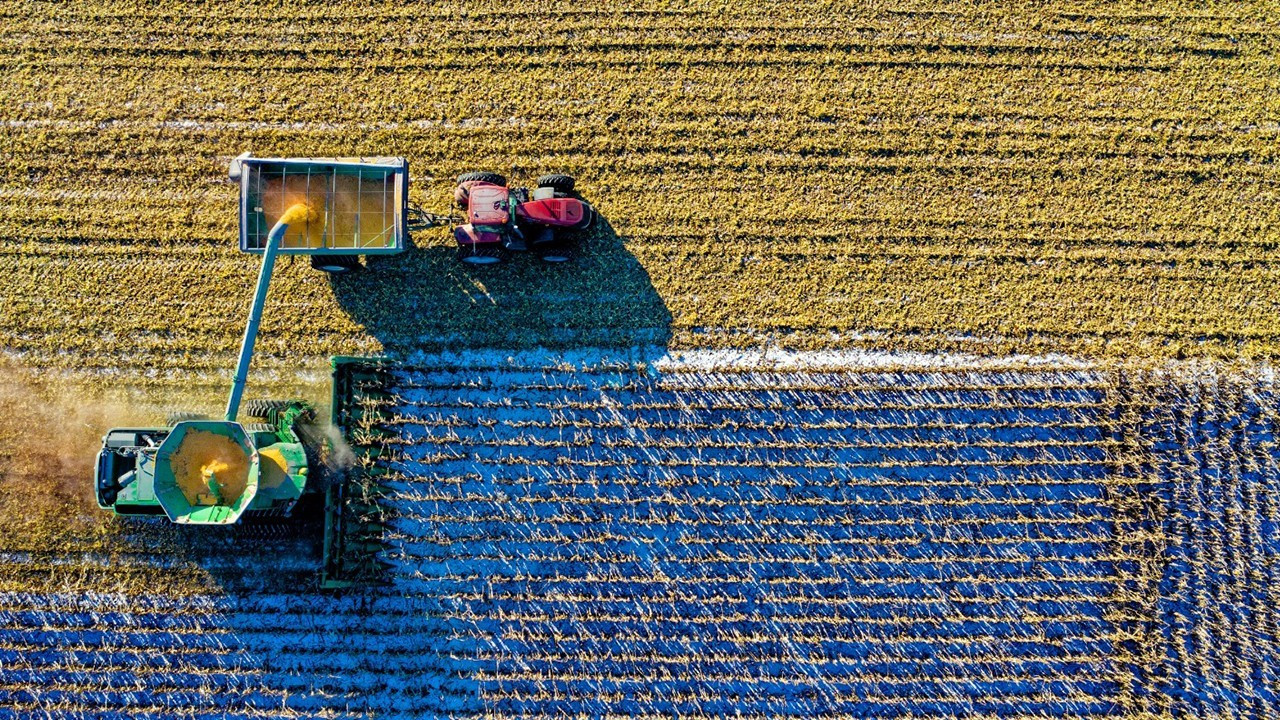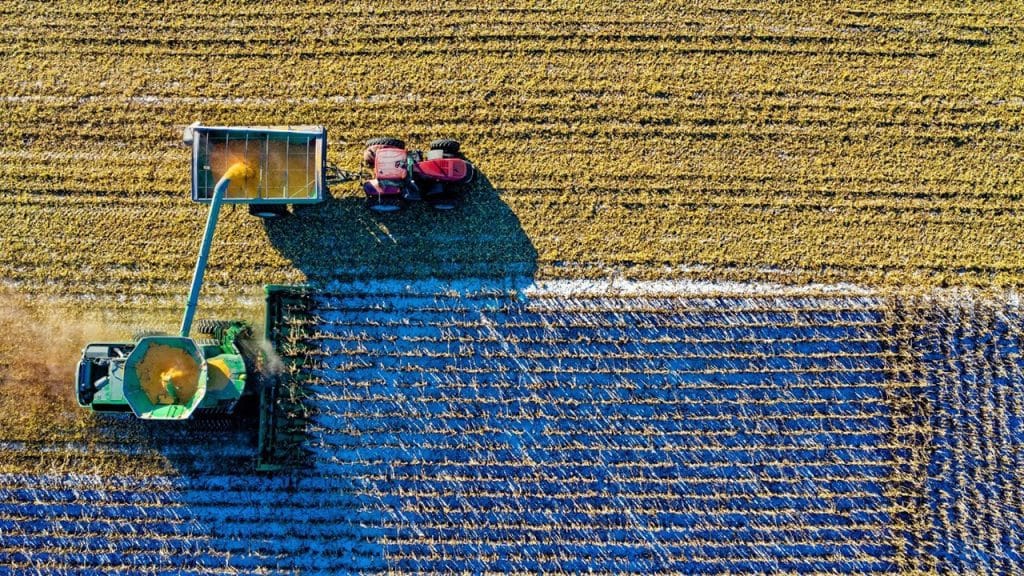
Kirişci explained the details of President Recep Tayyip Erdoğan’s good news for the agricultural sector. Expressing that agricultural production is one of the sectors that provide significant added value to the country in terms of its contribution to employment, the raw material it provides to the industry and food supply security, Kirişci said, “For this reason, the development of our rural areas is important in terms of ensuring the economic, social and environmental sustainable development of our country. The Ministry As we, we take these points into consideration when analyzing the current situation of the agricultural sector and creating sustainable policies for the future.” used the phrases. Noting that global climate change, Kovid-19 epidemic, wars and natural disasters increase the importance of food day by day, Kirişci said that apart from these risks, population growth, urbanization rate, number of tourists coming to the country, change in consumption habits, increase in income level, mass consumption. He stated that issues such as the proliferation of places, migrations, and the development of air, land and sea transportation increase the demand for food day by day. Stating that food supply security is on their agenda as an issue as important as the national defense industry, Kirişci made the following assessment: “These risks have led the world to implement protectionist policies in agricultural production more than ever. Agricultural production has become an irreplaceable and vital sector. We are now planning our agricultural policies accordingly, as we have done in the last 20 years. We know that we cannot build a strong and great Turkey without being strong and self-sufficient in agriculture. This view “We will continue to develop policies that will use our production resources in a sustainable way. In these days when we open the doors of the Turkish Century, we are working harder than ever for a stronger agricultural sector and we are making moves that will strengthen the sector.”
“10 projects will strengthen the infrastructure of agricultural production”
Reminding that President Recep Tayyip Erdoğan announced 10 new good news to farmers with the “Rural Transformation Project” in this regard, Kirişci said that with the implementation of these projects, the Ministry will strengthen the agricultural production infrastructure by protecting the producers and protecting the consumers. Minister Kirişci also shared information on the details of 10 gospels. Explaining that the first project will be related to the Black Sea natural gas commissioned by President Recep Tayyip Erdoğan on April 20, Minister Kirişci said: “Extracting this gas was a project we thought about years ago. If we believe and trust, we will get the fruits of what we believe. Unfortunately, we could not achieve this even though there are gas reserves. Thankfully, these exploration and drilling works, which started 46 years ago, returned to us as a very positive signal 2 years ago. As of today, a resource that has natural gas and will meet our natural gas needs for 35 years with this reserve, is currently to be integrated into our national line. From now on, we will be using natural gas as an energy source for the welfare of its citizens, the development of its own economy, and its own industry. Black Sea gas has been a project that we are proud of as the world’s shortest offshore field development project from the first discovery to production. In our country, an average of 6 million tons of fertilizer is consumed annually and its cost is approximately 60 billion liras at today’s prices. Fertilizer factories with a capacity of 1 million 855 thousand tons will be established in the Filyos Industrial Zone with the natural gas coming out of the Black Sea. With this investment, which has a fixed investment of TL 31.5 billion and will be completed in 4 years, one third of the country’s fertilizer consumption will be met, and foreign dependency in the largest agricultural input will decrease significantly.” He gave the information that urea, 660 thousand tons of calcium ammonium nitrate, 330 thousand tons of DAP, 224 thousand tons of ammonium sulfate and 60 thousand tons of potassium nitrate fertilizer will be produced, adding that they foresee the cost of the fertilizer to be produced in the new fertilizer factories to be established at today’s prices to be over 19 billion liras. Stating that the project is about contract production, he stated that they will expand production with this method. Expressing that they will guarantee producer income, Kirişci said, “We will make an important contribution to planning in agricultural production with the spread of contracted production. Our farmers will not have marketing problems during the harvest period. Our industrialists, who need raw materials based on agriculture, will have access to raw materials in the quantity and quality they want. We will ensure stability in agriculture and food markets by preventing price fluctuations.”
The number of Specialized Agricultural OIZs will be increased
Explaining that increasing greenhouse investments is the third project, Kirişci said that they will increase their greenhouse investment support, especially in the geothermal organized industrial zone (OSB). Stressing that they will expand the agriculture-based specialized OIZs (TDIOSB), which are the most important pillars of urban agriculture practices, in order to develop the “on-site production – on-site consumption” understanding, Kirişci continued: “We are in the 1st place in Europe and 7th in the world in terms of geothermal energy potential. I would like to proudly state that. We are the world leader in geothermal greenhouse cultivation. We will increase the number of TDIOSBs, which are 57 as of today, by using our renewable energy resources such as wind, solar and biomass as well as using our geothermal resources. In this context, we will increase the number of TDIOSBs to 100 in the next 5 years, “We will produce an additional 5 million tons of vegetables and create on-site employment for 200 thousand people. Thus, we will reduce energy costs significantly while protecting our environment with clean energy. We will both reduce foreign dependence on energy and produce products at a lower cost.” Noting that the irrigation issue is the 4th project, Kirişci drew attention to the fact that they have increased the productivity in agriculture with the efforts to strengthen the pressurized irrigation infrastructure. Pointing out that 77 percent of the water used in the country is spent in agricultural irrigation, Kirişci said: “As a result of global climate change, it is estimated that there will be a water deficit of 78 percent in irrigated agricultural lands by 2030. Based on this fact, we will continue our efforts to use our water resources efficiently. We will accelerate the modernization of the old irrigation systems and the new irrigation systems by switching to the piped system, which will increase the water savings from 32 percent to 45-50 percent. Thus, 6 billion cubic meters of water will be saved. 11 million additional areas can be irrigated with this water that can be saved, and By providing a net agricultural income increase of 7 billion liras, 990 thousand people can be employed. In addition, we will continue to provide 50 percent grant support to the individual pressurized irrigation systems of our producers.”
Livestock will be developed with 3 projects
Kirişci emphasized that they will implement 3 effective projects in order to improve the country’s animal husbandry, to make the country one of the world’s important breeding animal production centers and to ensure Turkey’s food supply security in red meat and milk. Reminding that the 5th, 6th and 7th projects of the 10 gospels announced in this context are aimed at improving animal husbandry, Kirişci said: “Besides, within the scope of these projects, the livestock sector in the region has 17 percent of our livestock in the provinces affected by the Kahramanmaraş-centered earthquake we experienced on 6 February. With our 5th project, we will encourage bee breeding centers with more than 50 heads. With our 6th project, we provide cattle and fattening support to family-type enterprises. We guarantee at least 1 minimum wage to each household. Also, in agriculture with contracted livestock, ‘ We have entered a new phase in our move to ‘domestic and national production’. With the ‘purchase guarantee’ we provide in contracted livestock, we offer absolute profitability to our producer with a price policy according to the cost. We also aim at price stability and market regulation in red meat with contracted livestock. We want them to get paid. With our 7th project, we give zero-interest loans to our farmers in the disaster area.” Kirişci stated that other projects will strengthen rural development and offer solutions to the problems experienced in agricultural production, and stated that the countryside should be turned into a center of attraction. Underlining that increasing productivity has important benefits in terms of ensuring food safety and health of the population, Kirişci said: “In addition, rural development is an important argument in reducing rural migration by increasing the quality of life of people in rural areas. In this respect, some important steps had to be taken for rural development and making the countryside a center of attraction. These include improving rural services and increasing access, improving rural infrastructures, making necessary investments and developing human resources. In this direction, we will make the countryside a center of attraction by spreading the village house model, which we have planned and put into practice in order to make rural areas attractive in the earthquake zone. Thus, we will increase the interest of young people and women in the countryside. Minister Kirişci gave the following information about the 8th, 9th and 10th projects: “With our 8th project, we are presenting the smart village houses model with its advanced infrastructure. We will build 143,261 village houses in the rural areas affected by the earthquake. We delivered the village houses to our citizens in our villages in the Türkoğlu and Gaziantep Nurdağı districts of Kahramanmaraş on April 22. With our 9th project,” We offer the opportunity to own a ‘smart village house’ with the conditions of our ‘My First Home Campaign’. With our 10th project, we support our farmers who want to transform their house into a ‘smart village house’. “
A professional writer by day, a tech-nerd by night, with a love for all things money.

